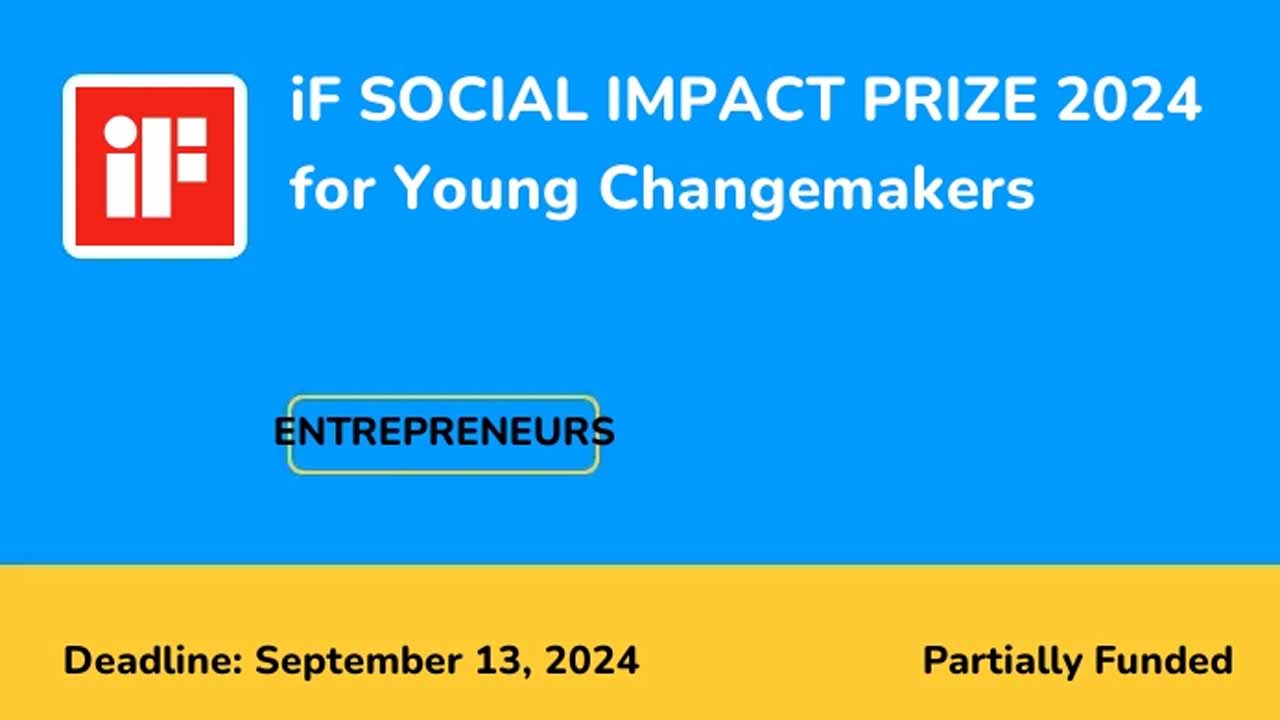Education
Your Ultimate Guide to Education Loans in the United States

Pursuing higher education is a significant investment in your future, but the rising costs can make it challenging for many students and their families to afford. Education loans have become a common solution to bridge the financial gap. However, taking an education loan is a substantial commitment that requires careful consideration and planning. You must know crucial things before taking an education loan in the USA.
Preparing for Student Loans: Crucial Information for U.S. Students

1. Understand the Types of Education Loans
There are two main types of education loans in the USA: federal and private student loans.
Federal Student Loans: These loans are funded by the federal government and typically offer lower interest rates and more flexible repayment options. They include:
- Direct Subsidized Loans: Available to undergraduate students with financial need. The government pays the interest while you’re in school, during the grace period, and during deferment periods.
- Direct Unsubsidized Loans: Available to undergraduate and graduate students regardless of financial need. Interest accrues during all periods.
- Direct PLUS Loans: Available to graduate or professional students and parents of dependent undergraduate students. Credit checks are required.
- Direct Consolidation Loans: You can combine all your federal student loans into a single loan.
Private Student Loans: These loans are offered by private lenders such as banks, credit unions, and online lenders. They often require a credit check and may have higher interest rates compared to federal loans. Terms and conditions vary by lender.
2. Evaluate Your Financial Need
Before taking an education loan, evaluate your total financial need. Consider the cost of tuition, fees, books, supplies, room and board, transportation, and personal expenses. Subtract any scholarships, grants, and personal savings to determine the amount you need to borrow.
3. Understand Interest Rates and Fees
Interest rates significantly impact the total cost of your loan. Federal student loans have fixed interest rates set by Congress, while private student loans can have fixed or variable rates. Variable rates can increase over time, potentially raising your monthly payments and total loan cost. Additionally, be aware of any origination fees or other charges that may apply to your loan. Federal Direct Loans have origination fees that are a percentage of the loan amount. Private loans may have different fee structures, so it’s crucial to read the fine print.
4. Know Your Repayment Options
Federal student loans offer several repayment plans:
- Standard Repayment Plan: Fixed payments over 10 years.
- Graduated Repayment Plan: Payments start low and increase every two years, over 10 years.
- Extended Repayment Plan: Fixed or graduated payments over 25 years.
- Income-Driven Repayment Plans: Payments based on your income and family size, with forgiveness of the remaining balance after 20 or 25 years.
Private loans typically have less flexible repayment options. Some lenders may offer interest-only payments while in school or short-term deferment options.
5. Consider the Impact on Your Future Finances
Taking on student debt will affect your financial situation for years to come. Before borrowing, consider how your future income and career prospects will enable you to manage your loan payments. Use online calculators to estimate your monthly payments and compare them to your expected salary.
6. Check Your Credit Score
For private loans, your credit score will affect your eligibility and interest rate. A higher credit score can help you secure a lower rate. If your credit score is low, consider improving it before applying or looking for a creditworthy co-signer.
7. Understand Loan Forgiveness Programs
Certain professions and situations may qualify you for federal loan forgiveness programs:
- Public Service Loan Forgiveness (PSLF): Available to borrowers who work full-time for a qualifying employer (e.g., government or non-profit) and make 120 qualifying payments.
- Teacher Loan Forgiveness: Available to teachers who work in low-income schools for five consecutive years.
- Income-Driven Repayment Forgiveness: Remaining balance forgiven after 20 or 25 years of qualifying payments under income-driven repayment plans.
8. Consider the Benefits of Federal Loans First
Federal loans typically offer more favorable terms and protections compared to private loans. Benefits include fixed interest rates, income-driven repayment plans, and loan forgiveness options. Exhaust federal loan options before turning to private loans.
9. Read the Fine Print
For both federal and private loans, it’s crucial to read and understand all terms and conditions. Pay attention to interest rates, fees, repayment terms, deferment options, and any penalties for late or missed payments.
10. Develop a Repayment Strategy
Before borrowing, create a plan for repaying your loans. Consider:
- Budgeting: Create a budget that includes your estimated loan payments and other expenses.
- Automatic Payments: Enroll in automatic payments to avoid missing due dates, which can damage your credit score.
- Extra Payments: If possible, make extra payments to reduce your principal balance faster and save on interest.
- Emergency Fund: Build an emergency fund to cover unexpected expenses without missing loan payments.
11. Seek Financial Advice
If you’re uncertain about the best options for funding your education, consider seeking advice from a financial aid advisor or financial planner. They can help you understand your options, the long-term implications of borrowing, and strategies for managing your debt.
Conclusion
Taking an education loan is a significant financial commitment that requires careful planning and consideration. Understanding the types of loans available, evaluating your financial need, and considering the impact on your future finances are essential steps. By thoroughly researching and planning, you can make informed decisions that support your educational goals while managing your financial future responsibly. Remember, education is an investment in yourself, and making wise borrowing decisions will help ensure that the investment pays off in the long run.
Scholarships
Worldwide University of Edinburgh Data Analytics Scholarship for Students 2024

The University of Edinburgh Business School is offering a range of scholarships for students pursuing the Master of Science in Data and Decision Analytics (Online) program in 2024. These scholarships are designed to support students from all nationalities and backgrounds, providing financial assistance to help them achieve their academic goals.
Scholarship Details
The University of Edinburgh Business School Data Analytics (Online) Scholarship Programme offers the following benefits:
- Scholarship Value: Awards of £5,000
- Nationality: Open to students from all countries
- Deadline: 01 July 2024
Eligibility Criteria
To be eligible for the University of Edinburgh Business School Data Analytics (Online) Scholarship Programme, applicants must meet the following criteria:
- Programme: Must be commencing study in September 2024 on the Master of Science in Data and Decision Analytics (Online) program.
- Academic Standing: Hold a minimum qualification of above-average academic achievement, typically 65% or above overall at the Masters level, with a distinction-level dissertation, or the overseas equivalent.
- English Competency: Must meet the English requirements for the PhD programme. The most commonly approved certificate is an IELTS, for which the minimum accepted score is 7.0 overall with at least 6.0 in each section.
Application Process
The application process for the University of Edinburgh Business School Data Analytics (Online) Scholarship Programme involves the following steps:
- Apply for Admission: Students must first apply for admission to the Master of Science in Data and Decision Analytics (Online) program at the University of Edinburgh Business School.
- Submit Scholarship Application: Eligible candidates should then submit the scholarship application through the university’s official portal.
- Evaluation and Selection: Applications are evaluated and selected by a panel of senior academic colleagues within the Business School.
Additional Funding Opportunities
The University of Edinburgh offers several other funding opportunities for students, including:
- Edinburgh Global Online Learning Masters Scholarships: Twelve scholarships covering full tuition fees for eligible part-time distance learning Masters programs.
- UK Government Postgraduate Loans: Available to UK residents for part-time or full-time postgraduate study.
- Other External Funding: Students can search for scholarships and funding opportunities on the University of Edinburgh website.
About the University of Edinburgh
The University of Edinburgh is a world-leading institution, ranked 22nd in the world in the QS 2024 rankings. The University of Edinburgh Business School is accredited by the Association to Advance Collegiate Schools of Business (AACSB), EFMD Quality Improvement System (EQUIS), and Association of MBAs (AMBA), highlighting its commitment to excellence in teaching and research.
For more information about the University of Edinburgh Business School Data Analytics (Online) Scholarship Programme and to apply, please visit the university’s website or contact the Business School directly.
Application Deadline: July 1, 2024.
For More Information,
Visit the Official Website
Scholarships
2024 Swansea University International Postgraduate Research Excellence Scholarships

Swansea University, a leading research institution in the UK, is offering the prestigious International Postgraduate Research Excellence Scholarships for the 2024 academic year. These highly competitive scholarships are designed to support exceptional international students pursuing postgraduate research degrees at the university.
Scholarship Benefits
The International Postgraduate Research Excellence Scholarships provide comprehensive financial support to recipients, including:
- A full tuition fee waiver for the duration of the research degree program
- A generous living allowance of £15,285 per year (2023/24 rate)
- Access to a world-class research environment and facilities
The scholarships are available for both Master’s by Research and Doctoral (PhD) programs at Swansea University.
Eligibility Criteria
To be eligible for the International Postgraduate Research Excellence Scholarships, applicants must meet the following criteria:
- Be an international student (non-UK/Republic of Ireland)
- Hold a relevant undergraduate degree with a minimum of a 2:1 classification or equivalent
- Meet the English language proficiency requirements for their chosen program
- Have applied for and met the entry requirements for a Master’s of Research or a Doctoral degree at Swansea University
Application Process
The application process for the International Postgraduate Research Excellence Scholarships involves the following steps:
- Apply for admission to a postgraduate research degree program at Swansea University.
- Submit the scholarship application through the university’s official portal, including a research proposal and supporting documents.
- Successful applicants will be notified of their scholarship award.
The application deadline for the 2024 scholarships is typically in early 2024. Interested students are encouraged to check the university’s website for the most up-to-date information on the application process and deadlines.
About Swansea University
Swansea University is a research-led institution known for its excellence in various fields, including engineering, science, and medicine. The university is ranked among the top 30 in the UK for research quality and impact, according to the Research Excellence Framework (REF) 2021.
International students at Swansea University benefit from a supportive learning environment, access to cutting-edge facilities, and opportunities for personal and professional growth. The university’s commitment to research and innovation makes it an ideal destination for aspiring postgraduate researchers.
For more information about the 2024 Swansea University International Postgraduate Research Excellence Scholarships and to apply, please visit the university’s website or contact the International Office.
Scholarships
iF Social Impact Prize 2024 (EUR 100,000)

The iF Social Impact Prize 2024, an initiative by the prestigious iF International Forum Design GmbH, is offering a total prize of €100,000 to support projects that contribute to solving urgent challenges and improving living conditions around the world. This international competition is open to companies, NGOs, foundations, design studios, social enterprises, and entrepreneurs who are working towards achieving the United Nations Sustainable Development Goals (SDGs).
Eligibility and Categories
To be eligible for the iF Social Impact Prize 2024, projects must:
- Already be established and implemented
- Contribute to solving well-known issues in any category of the UN SDGs 1-15
- Be submitted by companies, NGOs, foundations, design studios, social enterprises, or entrepreneurs (student concepts are not accepted)
Applicants can submit solutions related to the following SDG categories:
- No Poverty
- Zero Hunger
- Good Health and Well-being
- Quality Education
- Gender Equality
- Clean Water and Sanitation
- Affordable and Clean Energy
- Decent Work and Economic Growth
- Industry, Innovation, and Infrastructure
- Reduced Inequalities
- Sustainable Cities and Communities
- Responsible Consumption and Production
- Climate Action
- Life Below Water
- Life on Land
Benefits for Winners
The winning projects of the iF Social Impact Prize 2024 will receive:
- A share of the €100,000 prize money
- Publication on the iF Design Website for an unlimited period
- Introduction to a global design community, media, and the design-interested public
- Individual Winner Certificates
- Jury feedback and the opportunity to update their projects with the latest videos, photos, or news
Application Process and Deadlines
The application process for the iF Social Impact Prize 2024 involves creating an iF account, filling out the submission form, uploading photos, and providing a short project description. The submission deadline for the second round is September 13, 2024.
Evaluation Criteria
The international jury of experts from the social sector will evaluate and select the winning projects based on the following criteria:
- Problem-solving
- Beneficial experience
- Reasonable effort
- Moral and ethical standards
- Solidarity
Conclusion
The iF Social Impact Prize 2024 is a unique opportunity for organizations and individuals working towards positive social change to showcase their projects, compete for a substantial cash prize, and gain international recognition. By supporting projects aligned with the UN SDGs, the iF Social Impact Prize aims to empower those who make a difference and contribute to improving our society.
For more information and to apply, visit the iF Design Award website at ifdesign.com.
Method of Application
Visit The Official Website to Apply
Application Deadline: September 13, 2024.
For More Information,
Visit the Official Website
-

 News10 months ago
News10 months ago6 Ways To Attract a Rich Girl of Your Dream
-

 Finance9 months ago
Finance9 months agoWhich credit card is best for small businesses?
-

 Finance9 months ago
Finance9 months agoBest Business Credit Cards With 0% APR – February 2024
-

 Finance9 months ago
Finance9 months agoHow To Apply For A Chase Business Credit Card
-

 Finance10 months ago
Finance10 months agoLowe’s Credit Card: New Discounts on Lowe’s Purchases
-

 Finance9 months ago
Finance9 months agoLimited Time: Sign up for Chase Freedom Unlimited for a Year of Unlimited Cash Back!
-

 Entertainment11 months ago
Entertainment11 months agoNetflix Schedule January 2024
-

 Tech10 months ago
Tech10 months agoApple Vision Pro: $3,499 headset finally has a release date








